Sue’s living with the uncertainty she’s counselled others about
Coping with a blood cancer diagnosis and living with a blood cancer are topics Sue McConaghey has spoken about often to patient support groups in her role as a psychologist. A presentation she gave regularly, including at the Leukaemia Foundation’s patient conference in Sydney in 2009, was on Living with Uncertainty. Then, in 2020, when Sue was diagnosed with a blood cancer, she found herself living through experiences she had discussed in another of her talks, This is Not the Life I Ordered.
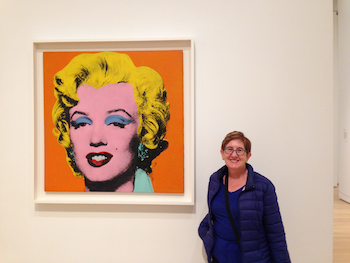
When Sue McConaghey was told she had blood cancer – AL amyloidosis – she immediately felt a sense of… “this is the sort of thing patients used to talk to me about”.
“And I did think it was rather hilarious that I’d got such a rare thing,” said Sue, 66, of Berkeley Vale on the NSW Central Coast.
“I knew what amyloidosis was, that it wasn’t good and probably involved feeling sick, and I really hate feeling sick. It was a very strange reaction in some ways.
“We have no control over the crazy thoughts.”
“‘Goodness me’ was my first reaction, and quicky after that was this ridiculous, irrational thought of ‘damn, I shouldn’t have retired’, said Sue who has three adult sons and five grandchildren.
“There was a feeling of great unreality about the whole thing, because the symptoms at that stage were certainly noticeable to me but I wasn’t in pain, and like a lot of people, the reality of having a life-threatening disease didn’t feel right.”
The onset of symptoms and the long road to a diagnosis
2019 “was the year of symptoms”, which Sue started getting while working part-time as a psychologist at the Central Coast Cancer Centre, north of Sydney.
“I had some very odd, gentle symptoms where I thought, ‘this is not right. I should check this out’.”
Swelling legs was the first sign, which “was a little bit strange” and went on for months. She started going to her doctor “who was quite thorough” and sent her off for tests, initially an ultrasound for ovarian cancer. Next, when she noticed she “would run out breath”, so she wore a heart monitor for a while, then her doctor suggested she lose weight.
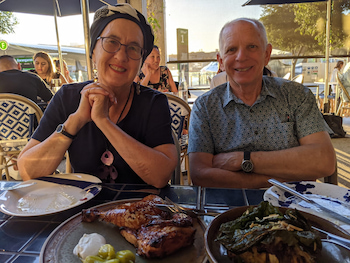
Her legs were still swelling in November when she had her last visit for the year with her GP.
He sent her off for “a different blood test” and it showed Sue had protein in her urine. She was referred to a kidney specialist, but due to the Christmas period, it was several months before she saw a nephrologist. He was keen to do a biopsy very quicky and Sue had to negotiate the date around the first of a series of art lectures she’d signed up for.
2019 was also the year when, because of her symptoms, Sue felt grumpy and tired, “not with clients, but with everybody else”, so she took time off work, then she decided to retire, and after retiring she found out she was sick.
“I had a grand plan, a sort of ridiculous fantasy that I would work part-time forever, then just ride off into the sunset,” said Sue, who was 64 at that point.
“I’d decided for my retirement, I’d reinvent myself, so I was very excited about these lectures in Sydney. I was going to turn myself into a Renaissance woman and planned to go on some quiet retreats.
“I’ve been teaching people about meditation and quiet time and stillness for 30 years.”
“I had this plan of doing short walks where I’d go off for the day with a backpack and a good book or my bible, or I’d pray or meditate. I played piano as well and thought I’d do some of that, and I wanted to contribute back to the community.
“That was the great plan and none of those things happened.”
In February 2020, Sue was diagnosed with AL amyloidosis with kidney involvement.
“My initial reaction was ‘you’ve got to be kidding”.
“I was sitting there with my husband and the kidney specialist, who said it could be four things, and it was actually the worst; it was amyloidosis.
“My poor darling husband, Laurie, the eternal optimist, said, “well, that’s not so bad is it?”. I looked at him and said, ‘that’s terrible’.
“Unfortunately, I knew about amyloidosis. I’d brushed up on it when I was working because occasionally somebody came through the cancer centre who had amyloidosis and the nurse practitioners would ask me if I would see this person.”
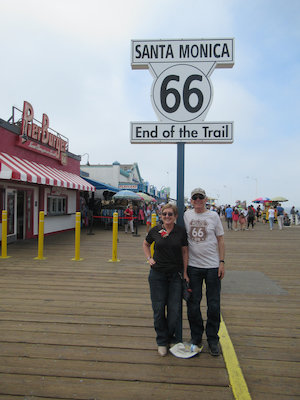
Amyloidosis treatment and recovery
Sue started treatment as the first COVID-19 lockdown hit. Prior to that she had lots of tests, “to make sure I didn’t have too much heart involvement” and her heart “seemed to be in pretty good nick”.
When Sue’s kidney specialist offered her referrals to a haematologist, ironically, she knew them all, so she chose to go into the public health system.
“I did that on purpose. I felt more comfortable with someone I knew of, but I didn’t meet him until I got diagnosed,” explained Sue.
“The other thing they did then was to look very hard to find if I had a myeloma of some kind, otherwise treatment was going to cost a king’s ransom.”
“That was another of the great ironies of this diagnosis. They found I did have myeloma, which was all very good and there was much cheering, which was just ridiculous. Everyone was deliriously happy because this meant they could look after me and I didn’t have to spend the children’s inheritance,” said Sue.
During her initial 16 weeks of treatment, Sue got sicker and sicker. After a brief break for her stem cell collection, she had a Hickman’s line put in, then had an autologous stem cell transplant in (SCT) August 2020. She stayed in hospital until Father’s Day, in early-September.
“I came home and felt terrible. I knew I would, but it was still pretty vile,” said Sue.
“And I can remember cursing the dietitian and the physio and everyone who told me to drink, drink, eat, eat, drink, eat, when, for the first time in my life, it was quite impossible to do.
“Clearly, I did it, but it took every trick I’ve ever spoken to patients about. I was very regimented and would watch the clock and make myself have half a cup of something every hour, because it was the only way.
“I slowly got back to walking, initially with my husband, because he’s such a delightful worrywart, and then I extended the walks.
“I was feeling pretty nauseous for what seemed to be an eternity and then one day it stopped. I was very grateful,” said Sue.
“By November, I was feeling alright and in December I was learning fabulous things with scarves.
“I lost my hair, but was very pleased I didn’t lose my eyebrows, and was thrilled to know about Look Good Feel Better. I did their workshops via Zoom.
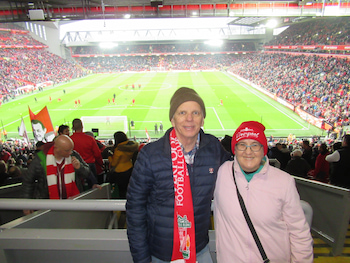
“People were very generous. A friend who’d had breast cancer lent me her wigs, which I loved, and I got quite good at wearing outrageous red things on my head.
“My hair started to look somewhat decent in January [2021] and now I’ve got fairly long, ghastly grey hair, which is in desperate need of a cut. Not that I’m complaining, but I think it’s quite funny how things twist and change very quickly.”
When Sue spoke to the Leukaemia Foundation, she was experiencing a “big burst of energy”, although “I’m probably not out of the woods”.
She’s walking about five kilometres daily and is feeling very well, but twice Sue has lost consciousness briefly after riding her bike, so she’s had more tests and has a referral to a cardiologist.
“It just shows that you can’t ever be sure what’s going to happen next,” she said.
Returning to work after retirement
In February, when Sue was feeling really well, she decided to return to work.
“I feel like I’m not finished yet, and it’s delightful to find that everything hasn’t leached out of my mind, because one of my thoughts was that maybe I’d forgotten everything!” she exclaimed.
Having spent 10 years in cancer care in the public health sector, she decided to return to private practice.
“Public health changes quite a lot all the time and I felt maybe I was losing the capacity to tolerate a lot of changes that were outside of my control, such as large waitlists,” she said.
Now Sue works one day a week as a clinical psychologist in a private practice, seeing a mix of people with general depression, anxiety, grief, and loss.
“Some issues have been related specifically to COVID because they were unable to use their normal coping strategies to connect with family, do hobbies, or whatever,” said Sue.
“People are struggling that little bit more, and there are some people with genuine health anxiety who are deeply disturbed by fears of conspiracy or how safe vaccinations are, and all those sorts of things.
“I feel very comfortable talking to them, because it’s been a hard time.”
And for Sue, working means she can connect with her community and make a contribution, “when there’s a huge waiting list here on the Central Coast for psychological interventions”.
“And it’s wonderful that my body recovered so strongly. I was so pleased about that, and it’s just a privilege to be able to work at the moment.”
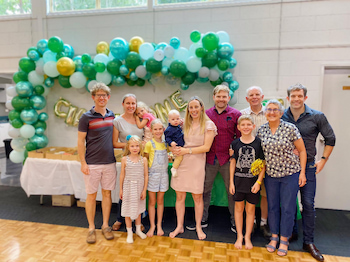
Sue’s connection with the Leukaemia Foundation
Sue encountered the Leukaemia Foundation’s blood cancer support coordinators when she started working at the cancer care centre in 2009.
“They were always very well respected and they found out I actually quite liked giving talks around my belief that people bring a lot of strengths to their situation, and you can give patients skills they can use to cope by themselves,” said Sue.
“They may just need a bit of extra help in understanding more about the psychology of their situation, and that way they don’t end up in a crisis. That was always my theory.
“There was a good relationship between the hospital nursing staff, allied health people like me, and some of the haematologists, and there were different ways of speaking to patients – at patient education days and seminars, monthly support groups, through to conferences.”
Living with uncertainty
“The talk I kept being asked to give over and over again, was called Living with Uncertainty,” said Sue.
“Uncertainly is uncomfortable at first, then it tends to become the fork in the road.
“Often, when we’re in a crisis of some kind, particularly with our health, it gives us an opportunity to stop and reflect, and to think about doing things differently. In a crisis, you don’t have to keep living the way you’ve always lived,” she explained.
“And why is uncertainty so horrible? I acknowledged that it is really awful and painful. There are lots of expectations and dreams involved. I’d talk about the place of rumination and not being able to switch off, and fears about what the future will look like.
“You can live in a miserable situation but if you’re worried about the future, you’ll be twice as miserable, so I included anxiety management and positive psychology – the brainchild of Martin Seligman, a long-time president of the American Psychological Association.
“He did a lot of research into what enhances our lives, as distinct from what takes away from our lives, so the role of positive emotions, meaningful activity and putting these into practice.”
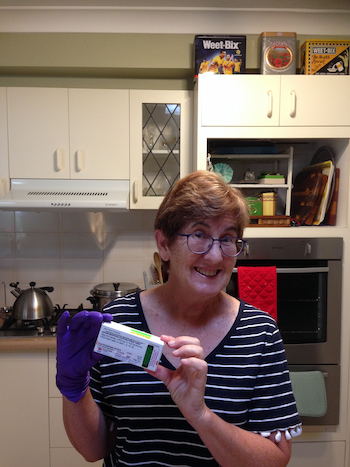
Did Sue ever think she’d need to follow her own advice?
What struck Sue over the years, before her diagnosis, was that she had no control over what might happen in her life. And she did have a sense that “something is bound to happen”.
“But when it did actually happen, it was still a bit of a surprise,” she said.
“And the fact that it was rare was even more of a surprise. In my mind, I was thinking of the big hitters, like heart disease, or a nice normal run-of-the-mill cancer possibly. Not something rare that people can’t spell.
“And I thought… ‘will I find out I’ve spoken utter rubbish to people for 10 years?’ but then I thought, ‘no I don’t think I have’.
“In my head, I started questioning… ‘what have I told people about this situation that I would now change?’ And I probably wouldn’t change a real lot and I must admit, that’s a bit of a relief.
“For example, one of the things I found hard, working in a hospital, was staff expectations about what a psychologist does,” said Sue.
“As a general rule, I thought that when people are in hospital and they are really, really sick while undergoing a stem cell transplant, they don’t want to see a psychologist.
“People might want to see the psychologist when they’re diagnosed. They certainly might want to see a psychologist when they’re preparing for a treatment like a transplant. And they might even want to see a psychologist when they’ve actually come through at the other end.
“But when you’re really, really sick, you probably don’t want to see a psychologist, you probably want to see someone who can give you help with your nausea, for example.
“And I can remember having a tussle with staff sometimes because they’d know that someone was very, very miserable, and I figured, ah, you know, I can pop in and say ‘hello’, but honestly, I can’t do therapy with them.
“And I felt the same,” said Sue, having experienced going through a SCT herself.
“I was pleased when people talked to me, and I could listen to some nice music, and I was so pleased that somebody didn’t think that because I looked so miserable, I needed to bare my soul at that point. I could barely put two sentences together!
“There are times when people really need to sort out their decision-making; what’s going to be important; how do they tell their families; and how to keep putting one step in front of the other when it’s getting really hard. That’s important and that’s a good time to see a psychologist,” said Sue.
“But when you’re really, really sick, you want good medication, you want good nursing care, and you want good doctors, and a few people just have to cut a bit of slack because you’re not coping terribly well.
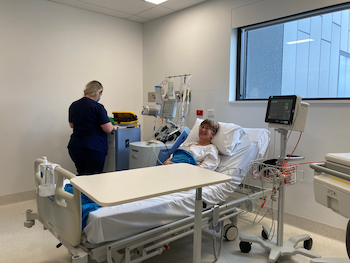
“And that was hard, because it was a clinical decision I’d make as a psychologist that didn’t always meet the needs of the hospital, because they’d say, ‘this person is really upset, you need to go and see them’.”
During treatment, Sue didn’t seek psychological help even though it was offered to her.
“A couple of colleagues stood close by and that was really helpful, and they would do the check-in.
“At one stage I was thinking about when would I need to speak to someone? And probably, if the treatment had gone terribly awry and I had to face more treatment, I probably would have said ‘now I need to talk to someone’.
“I was very fortunate to be surrounded by staff who walked with me and I do remember one of the nurse practitioners looking at me and saying, ‘you’re not doing so well’. I burst into tears and said, ‘no, I’m terrible’.
“And that was just wonderful, to be able to just feel quite sorry for myself at that point and then move on.”
Advice based on Sue’s professional and personal experience
Early in her journey with blood cancer, Sue made the decision to cooperate with the advice of her haematologist, “so I didn’t have to do a lot of decision-making” regarding treatment.
“I said I’d do whatever they told me to do.”
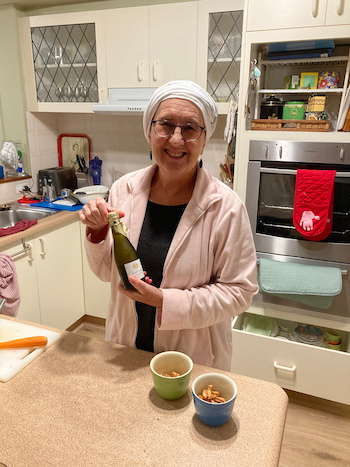
“That’s something people need to decide early on. Are they in or not? And most people say, ‘yes, I’ve signed up for this’ and once you’ve done that it’s helpful not question that decision again for a while.
“You’ve got to go through all the stages. That’s really important because when it’s miserable on the way through, you don’t spend too much time doubting whether you’ve made the right decision, because it’s way too early. You’re in the middle of it and if you’re in the middle of anything you can’t evaluate whether it’s worthwhile until you get to the end.
“That’s where the focus should be… on getting to the end.”
“If you’re told, ‘go for a walk around the ward’ or ‘keep eating’, you really need to stick to that task. Break it down, focus on it, be willing, and take whatever help you can get in terms of getting something to eat or drinking on the hour – whatever works for you.
“But one thing at a time, one day at a time, and if a day is too long, a shorter time.”
Another point Sue suggested is, “notice what crap your head throws at you” such as, “this is so revolting. I think I’d rather be dead”.
“Yes, you’re going to think that but don’t take too much notice of that because it’s really just a mind game.
“People tend to be frightened about how intense these thoughts are,” said Sue.
“They’d say, ‘oh no, I’m thinking about dying’. And I’d say, ‘well, you’d be nuts if you weren’t thinking a little bit about dying. The idea is to not be overly frightened of that.
“Just because you’re thinking it, doesn’t mean it’s happening, or that you want it to happen.”
“And I was very aware when this was happening to me because I was thinking, ‘this is the first time through, I signed up for this’.
“But, for example, if somebody suggested to me that I needed to have another stem cell transplant, that would require some deep thinking, and the time for that decision wasn’t last year.
“The other thing I did a lot, and which people used to talk to me about, is that we can’t necessarily control what we do or the situation we’re in, but we have a lot of control about how we tackle it.
“I spent a lot of time sending up prayers along the lines of, ‘please help me be nice today’. If couldn’t control how sick I felt, or how tired I was, or how miserable I felt, or whatever, I might be able to control whether I said please or thank you, whether I smiled at someone or whether I was easy to get on with.
“So I really focused on that kind of stuff because it was very important to me.”
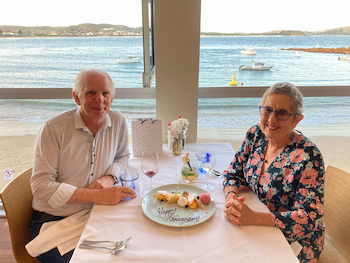
Relaxation and meditation – slowing down and being rather than doing
Sue went to university during the 1970s and her studies included a complex understanding of relaxation, its role in meditation, and the power of the mind.
“Everybody can meditate a little bit because it’s not about clearing their mind, it’s about focusing attention and initially becoming mindful of the breath, so bringing your attention down to something quite specific,” said Sue.
“Meditation is also often combined with a respect for nature and the value humans find from, say, sitting on a beach or walking on a mountain trail. Lots of research work is being done on walking meditation.
“And I’ve tended to spend a lot of time talking to people about those sorts of things.
“I think people are a little frightened by the whole idea of stillness or of quietness or of sitting on the beach and just watching the waves go in and out, and just allowing your breathing to follow the rhythm of the waves.
“These are very simple techniques of paying attention, quietening our busy minds and having a sense of where we are in the universe.
“I’m a great believer in walking and breathing and I really think breathing is a fabulous thing. If we stop breathing, we’re in big trouble.”
“I’m a Christian and I’ve looked at some of the old mystics of the past, from the days of retreats, and following a tradition of Lectio Divina, which is taking a portion of scripture, reading it slowly and quietly and gently to myself, and really mulling over the words.
“I don’t recommend that to all my clients but that’s certainly helped me.
“People have to find their own ways, but I might say to them, ‘have you thought about some kind of meditation practice?’,” said Sue who is a lover of the great outdoors.
“And people should get outside, even if they don’t do anything, just get outside and sit and look at a tree, and things will happen to you. It’s very simple and I just say, ‘look at the tree and tell me how you feel in 10 minutes’.”
Mediation is a daily practice for Sue, which she does in a range of ways with the aim of “slowing down and concentrating more on being, than doing.
“And that’s quite a challenge for me because I am a doer, so I don’t do that easily.”
Meaning, purpose and valuing yourself
Sue says it’s important to think about what gives us meaning and to have some kind of purpose but not be too connected to that because the purpose might have to change.
“It certainly has for me,” she said.
“When we’re faced with life-threatening illness, we have an opportunity that other people don’t have, a chance to really think about how we’re going to make something good come out of this.
“And after telling people that, now I can speak about that too because I’ve been there.
“I have benefited greatly from 30 years of sitting in on other people’s lives. They have given me a great gift because they have gone before me” said Sue, summing up her many years in cancer care, general practice and in the chronic pain world.
“I have just been privileged to hear people’s stories over and over again about things they weren’t expecting. Sometimes it was accidents, sometimes it was illness, or other things. Just listening to them and how they struggled with the surprise of it all has taught me a lot.
“And I think that’s why I had a sense of ‘something would happen’ and why I wasn’t overly surprised when I got something.
“That was part of it but if we go way back, my father was diagnosed with melanoma when I was starting university. He went into remission, it came back, and he died when I was 35.
“That has also taught me a lot. These things happen, they just come out of the blue and you never know when they’re going to happen. And then the challenge is, how do you live once this happens to you and how do we as a family deal with that.
“There were things that I have taken from that as a young woman and that I have taken from all my clients who I am very grateful for as to how I could do this.
“We learn from each other and it does help sometimes to stay very quiet when other people are talking about their stories, because we will learn about what helps and what doesn’t.
“Others helped me by simply talking honestly and for me there was the sheer joy of hearing people’s stories and helping them do better than they would have done by themselves.”
Sue’s path forward
Sue is being regularly monitored with blood tests and haematology visits every two months and appointments with her kidney specialist every three months.
“I’m gathering specialists, and I’m about to add a cardiologist to my list,” said Sue.
“My poor doctor, who is close in age to me – I’m his first amyloidosis patient – so if you stay in local general practice long enough, you’ll come across one.”
And about the future, Sue says, “they’re guarded”.
“I could keep going like this for a long time, or not. But everyone’s quite happy with my blood tests at the moment. I still have signs of some kidney damage, but it’s not getting worse at this point.
“I’ve always loved food and I really think exercise is important. I love a glass of wine with my meals, I bake, and I eat because it’s wonderful.
“And I’m more convinced than ever that my daily walk is really important to my general wellbeing. My entire body needs it and I absolutely need to get outside. We live near a lake and it is quite lovely because I get to see the lake change.
“The more I can continue to move and have a body that works, the better I’ll be if I have to have any more nasty interventions.”
Last updated on October 29th, 2021
Developed by the Leukaemia Foundation in consultation with people living with a blood cancer, Leukaemia Foundation support staff, haematology nursing staff and/or Australian clinical haematologists. This content is provided for information purposes only and we urge you to always seek advice from a registered health care professional for diagnosis, treatment and answers to your medical questions, including the suitability of a particular therapy, service, product or treatment in your circumstances. The Leukaemia Foundation shall not bear any liability for any person relying on the materials contained on this website.